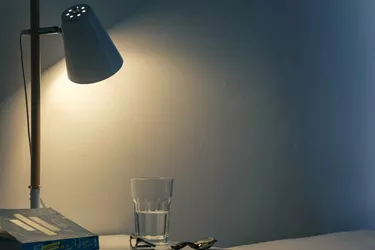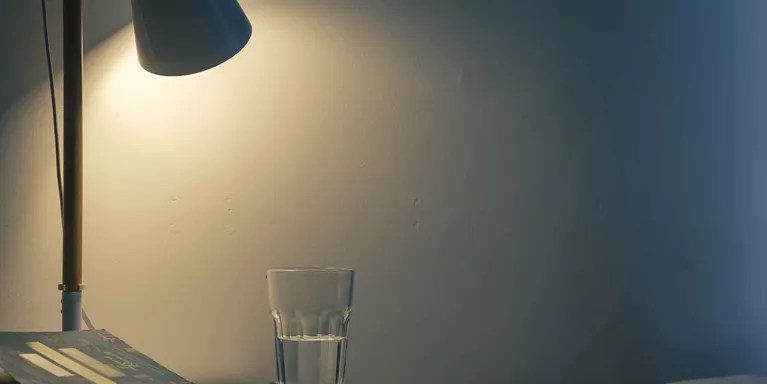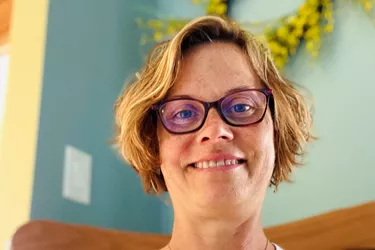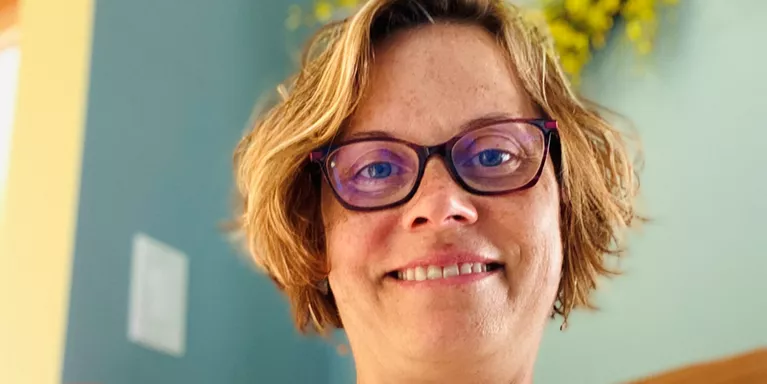The seeds of hope
Solange blogs about how gardening has helped her cope with her bipolar disorder.
Follow Solange's blog at www.seedstorecovery.com
Since a young age, I had always felt that I was different, I seemed to feel more than others around me, everything was in extremes; love to obsession, joy to euphoria, anger to rage. I couldn't take hold of my emotions; they always had a hold of me. Of course this is hard to see in a teenager as there is typically already so much going on in life at this age, so this was simply put down to me being a "teenager", rather than the uncontrollable moods of bipolar disorder.
It wasn’t until my early twenties whilst studying and working, that it all became too much and I had an episode of depression which made me feel like my life was slipping away from me; an empty feeling was all I had left. I went to my GP and was told I had unipolar depression; was given medication, put on a waiting list for counselling and sent on my way. But I couldn't get rid of the feeling, that there was more to it.
"It took three isolating, scary and frustrating years to get my final diagnosis."
I continued to see my GP to air my concerns and asked to be referred to the mental health team, which seemed to fall on deaf ears. It took three isolating, scary and frustrating years to get my final diagnosis of bipolar disorder type 2.
The first thing I felt was relief. Then came the realisation of what this diagnosis meant. This wasn't going to be a one-time occurrence. There was no quick fix or cure; I was going to have this illness for the rest of my life. This was too difficult for some closest to me to accept, which led to my relationship with my then partner coming to an end.
But being diagnosed gave me a better understanding of why I felt the way I did. I could now start to get the proper help, support and advice l needed.
"The opportunity to share my passion for plants and experiences of living with bipolar has given me greater empathy and understanding."
My bipolar continues to have a massive impact on my daily life, both positive and negative. On the positive side, it's given me the chance to be creative, which is where my love of plants stems from; finding a new form of therapy, through gardening. The opportunity to share my passion for plants and experiences of living with bipolar has given me greater empathy and understanding. Through reflecting and sharing my own struggles, I'm able to relate to what other people may also be going through. On the flip side, just when you feel you're beginning to get on top of things; bipolar rears its head with; hypomania, making me irritable, angry and paranoid. This then leaves me depressed, anxious, out of work and having to hit the reset button again.
My difficulties in keeping a job, turn to further worries of not being stable enough to have a family and that if I do, how will my illness impact on their lives.
These thoughts can be very paralysing and coupled with agoraphobia, have stopped me from leaving the house. Medication has helped, as has having someone close to me learning and understanding my triggers with me. But I've had to learn to adapt and manage my bipolar myself; finding new forms of therapy. This is where discovering and growing plants has helped change my perspective on life and my ability to cope.
"Different plants have different needs; some grow in the most unlikely of circumstances, as do we, bringing hope."
With pressures on the NHS and mental health support sometimes being difficult to come by, gardening has become my main source of therapy. I find my own mental health is much like a garden; both need to be nurtured in order to grow. Both have their ups and downs and challenges, which we look to solve. Different plants have different needs; some grow in the most unlikely of circumstances, as do we, bringing hope. It is this hope and ability to survive that first hooked me into growing plants. A simple seed on a window sill can become something magical , and just watching it grow as it's nurtured can bring a belief that you too can grow.
"When I'm finding things difficult in the world around me, this is the one place that I can reflect and collect myself."
I can't wait for each new season; they all bring something new and special to the garden, from autumn colour changes, winter frosts, freshness in spring, to full bloom in the summer. I can lose myself in the tasks, creating an escape from my troubles, doing things in my own time and at my own pace, with my efforts rewarded by a beautiful space. This is my place to practice mindfulness, by taking in the moments; whether listening to the sound of bamboo rustling in the breeze, or the bees dancing from flower to flower. It's a positive and relaxing space, in which to reconnect with nature. When I'm finding things difficult in the world around me, this is the one place that I can reflect and collect myself. Most importantly, plants and the garden won't judge me; this is where I can rebuild my confidence and become me again.
It might not be for everyone, but it has definitely had a positive impact on my own mental health and that of my partner, who now also enjoys time in the garden after a long or stressful day. The best thing about gardening is you don't even have to have a garden or allotment; a single potted plant can be just as inspiring to care for and uplifting to watch as it grows. This is how I first started and I hope it helps you too.
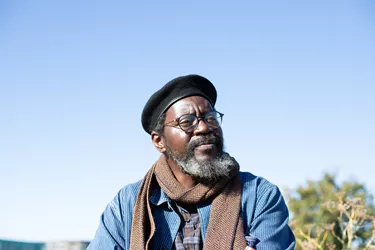

Information and support
When you’re living with a mental health problem, or supporting someone who is, having access to the right information - about a condition, treatment options, or practical issues - is vital. Visit our information pages to find out more.
Share your story with others
Blogs and stories can show that people with mental health problems are cared about, understood and listened to. We can use it to challenge the status quo and change attitudes.














